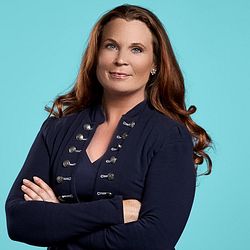
Blogginlägg -
Sustainable transportation a hot topic at the School of Business, Economics and Law
Hogia’s Lars Tingström visited the Gothenburg School of Business, Economics and Law and delivered a presentation on sustainable transportation based on integrated and standardised IT systems. It’s a subject that appeals to many people, not least the students at the School’s Logistics Faculty.
Transportation is needed in order to move goods and people between various locations, for instance to go to work, take the children to kindergarten, go to the shops, visit family and friends and so on. The transport of people and goods within Sweden currently accounts for one-quarter of the country’s total energy consumption. The Swedish Transport Administration expects that the demand for goods transport will rise by 24 % up to the year 2030. It is vital that this increase takes due account of both economic and environmental issues.
Hogia is contributing to a sustainable and transport-efficient society. We develop transportation and logistics systems to help our customers in the transport sector improve the efficiency of their operations, thus reducing their resource consumption. Our systems are used for transport planning in order to exploit all available capacity and optimise every transport operation, resulting in shorter distances and reduced fuel consumption.
IT systems are becoming increasingly smart, and new technologies offer new opportunities. Through Hogia’s standardised interfaces, we link together different transport modes such as trucks, trains and ships. This intermodal approach improves efficiency and resource utilisation. Digitalisation allows us to remove bottlenecks from transport routes. For example, using digitalisation it is possible to provide automated entry to terminal facilities. Entry is thus faster and helps cut queues leading into the terminal, which has a positive impact on the environment.
Digitalisation makes information easily accessible, which in turn generates better operational control. Automated flow from order to invoicing means the process is faster, thus further improving profitability. Digitalisation and the use of efficient transport systems contribute to sustainable transportation, which is an important part of a sustainable society.
Lars Tingström
